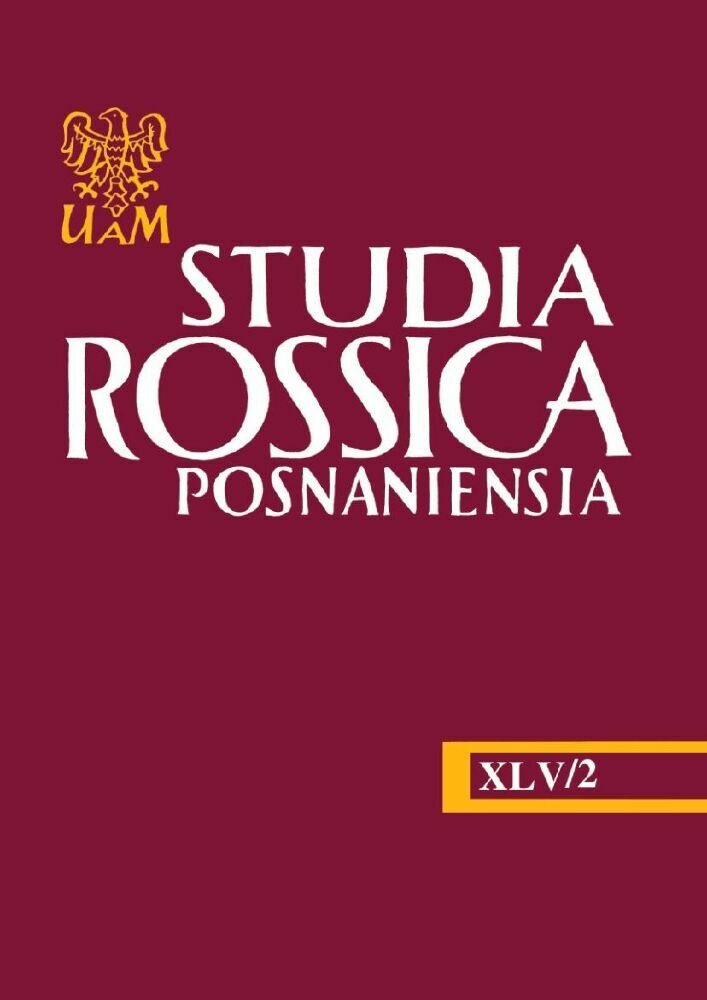Abstrakt
The article is devoted to the study of some active processes affecting the system of the modern Russian language. The result of the study is the identification of factors that negatively affect the dynamics of the Russian language, which are presented in socio-political and linguistic aspects. The socio-political reasons are caused by the active reduction of the Russian-language information space in the near and far abroad area under the influence of the collapse of the Soviet Union. Unsuccessful phenomena in the current state of the Russian language consist in the intentional violation of the language norms in the Internet space, the substitution of normative vocabulary for meaningfully and stylistically belittled expressions of rural life, the clogging of the Russian literary language with words and verbal turns of slang origin, the dissemination of obscene vocabulary, the saturation of the language with words and expressions of foreign origin, and the unjustified euphemization of speech, leading to the erosion of the meaning of words. The general conclusion is the need for the serious efforts of the whole society against the simplification and the purity of the Russian literary language.
Bibliografia
Arefʹev, Aleksandr. Padenie statusa russkogo âzyka na postsovetskom prostranstve. Web. 20.08.2008. http://www.demoscope.ru/weekly/2006/0251/tema01.php.
Baldaev, Dancik S. Slovarʹ tûremno-lagerno-blatnogo žargona (rečevoj i grafičeskij portret sovetskoj tûrʹmy). Odincovo, Kraâ Moskvy, 1992.
Brusenskaâ, Lûdmila. „Kriminalizaciâ institucionalʹnogo diskursa: problema žargonizacii sovremennogo russkogo literaturnogo âzyka”. Filosofiâ prava, 3 (64), 2014, s. 84‒87.
Haber, Matt. „Daily Show’s LBJ ‘Piss’ Take”. Web. 19.11.2008. https://observer.com/2008/11/ idaily-showis-lbj-piss-take.
Kolin, Konstantin. O roli russkogo âzyka v sohranenii edinogo informacionnogo prostranstva Rossii. Web. 12.11.2019. http://emag.iis.ru/arc/infosoc/emag.nsf/BPA/36b91bb5eaacbbf1c32575c20046c176.
Krylov, Anton. „Tatarstan pytaetsâ vzâtʹ revanš po âzykovomu voprosu ”. Vzglâd. Delovaâ gazeta. Web. 26.04.2018. https://vz.ru/society/2018/4/26/919959.html.
Pelevin, Viktor. Svâŝennaâ kniga oborotnâ. Moskva, Eksmo, 2008.Romanov, Nikolaj. General ot mašinerii. 2017. Web. https://books.google.ru › books.
Sibilev, Viktor. „Sootečestvenniki i položenie russkogo âzyka za rubežom”. Meždunarodnaâ žiznʹ, 12, 2011.Slapovskij, Aleksej. Deneg net. Мoskva, Eksmo, 2005.
Vodolazkin, Evgenij. Èkologiâ âzyka. Pisatelʹ Evgenij Vodolazkin – o berežnom otnošenii k rodnoj reči. Web. 13.09.2018. https://iz.ru/786591/evgenii-vodolazkin/ekologiia-iazyka.
Voznesenskaâ, Irina, Tatʹâna Popova. „Pravila rečevogo povedeniâ v internet-obŝenii: normativnyj i ètičeskij aspekt”. Mir russkogo slova, 3, 2009, s. 47‒59.
Zaliznâk, Anna, Irina Levontina, Aleksej Šmelev. Konstanty i peremennye russkoj âzykovoj kartiny mira. Moskva, Âzyki slavânskih kulʹtur, 2012.
Периодические издания
Kommersant, 26.04.2018.
Kommersant weekend, 10.06.2016.
Komsomol’skaâ pravda, 02.07.2011.
Moskovskij komsomolec, 23.01.2012.
Press-vypusk WCIOM, 3897. Web. 06.03.2019. https://wciom.ru.
RBK – Rosbizneskonsalting, 8.06.2019.
Rossijskaâ gazeta, 02.07.2011.Trud, 27.11.1991.
Licencja
PRACE PUBLIKOWANE W CZASOPIŚMIE DOSTĘPNE SĄ NA LICENCJI CREATIVE COMMONS:
Uznanie autorstwa-Użycie niekomercyjne-Na tych samych warunkach 4.0 Międzynarodowe.
Autorzy tekstów przyjętych do publikacji w czasopiśmie „Studia Rossica Posnaniensia” są zobowiązani do wypełnienia, podpisania i odesłania na adres redakcji umowy o udzielenie nieodpłatnej licencji do utworów, z zobowiązaniem do udzielania sublicencji Creative Commons.
Zgodnie z umową, autorzy tekstów opublikowanych w czasopiśmie “Studia Rossica Posnaniensia” udzielają Uniwersytetowi im. Adama Mickiewicza w Poznaniu niewyłącznej i nieodpłatnej licencji oraz zezwalają na użycie sublicencji Attribution-NonCommercial-ShareAlike 4.0 International (CC BY-NC-SA 4.0).
Autorzy zachowują prawa do dalszego, swobodnego rozporządzania utworem.
Autorzy, którzy wykorzystują w swoim tekście cudze utwory (np. ilustracje, fotografie) proszeni są o dostarczenie do redakcji czasopisma zgody na publikację.
Użytkownicy internetu uprawnieni są do korzystania z utworów opublikowanych po 2015 roku “Studia Rossica Posnaniensia” tylko w celach niekomercyjnych, pod następującymi warunkami:
https://creativecommons.org/licenses/by-nc-sa/4.0/
Uniwersytet im. Adama Mickiewicza w Poznaniu zachowuje prawo do czasopisma jako całości (układ, forma graficzna, tytuł, projekt okładki, logo itp.).

